A small sugar compendium: fructose, sorbitol and FODMAP explained
If you suffer from certain kinds of carbohydrate malabsorption you are often confronted with names of chemical compounds – it is often very easy to become confused. Therefore, we put together a small compendium that can be used, whenever needed.
Back to blog
Image:
Photo by Diana Polekhina on Unsplash
Simple sugars
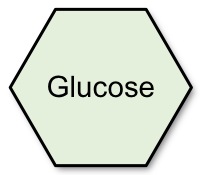 | Glucose Glucose, a simple sugar, is the most important energy source in humans. It is readily absorbed in the small intestine. It is also known as grape sugar, corn sugar or dextrose. |
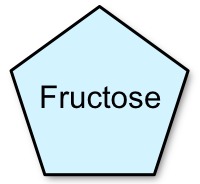 | Fructose Fructose is a simple sugar that is slowly absorbed in the small intestine. The absorption rate is highest when equal amounts of glucose and fructose are present. When the amount of excess fructose is too high, fructose can reach the colon where it is fermented by bacteria. |
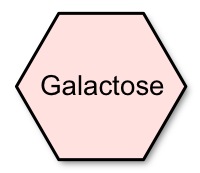 | Galactose Galactose is a simple sugar that occurs in foods like dairy products. In the small intestine, galactose is transported by the same carriers as glucose, therefore, the absorption is very fast. |
Sugar alcohols
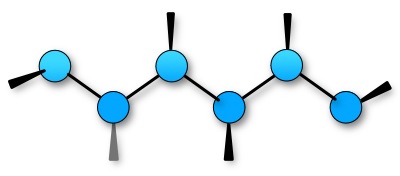 | Sorbitol, mannitol, maltitol and xylitol Sorbitol and other sugar alcohols naturally occur in some fruits and vegetables, e.g. apples and pears. In industrially produced foods they serves as sugar substitutes or wetting agents. Sorbitol is poorly absorbed in the small intestine and reaches the colon where it is fermented by the local bacteria. Sugar alcohols have a strong osmotic effect and may cause digestive disorders and diarrheas when eaten in large quantities. |
Double sugars
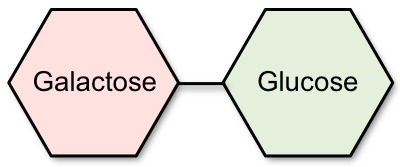 | Lactose Lactose is a double sugar, consisting of glucose and galactose. It only occurs in the milk of mammals. It has to be broken down into its components enzymatically in order to be available for intestinal absorption. Lactase deficiency usually causes diarrhea, as lactose exerts an osmotic (water-attracting) effect and the degradation by the intestinal microflora may be accompanied by the formation of toxic by-products. |
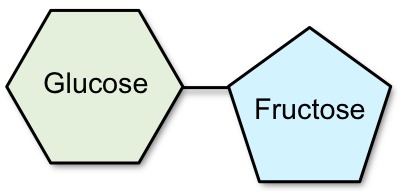 | Sucrose Sucrose is also known as cane sugar, table sugar or simply sugar. It consists of one molecule each of glucose and fructose. In the small intestine, the double sugar is enzymatically broken down into its components which are then absorbed. |
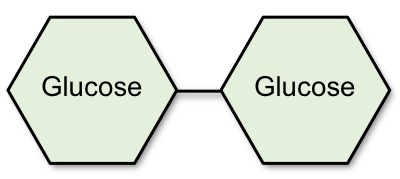 | Maltose Maltose is a double sugar which consists of two glucose molecules. It is a product of the enzymatical degradation of starch. It occurs in beer, cereals, potatoes or sweetened products. |
Oligosaccharides
Oligosaccharides are carbohydrates that consist of 2–10 simple sugars. Longer chains are called polysaccharides. Humans do not possess the necessary enzymes to break the chains down into their components. The oligosaccharides listed below are therefore counted as dietary fibers.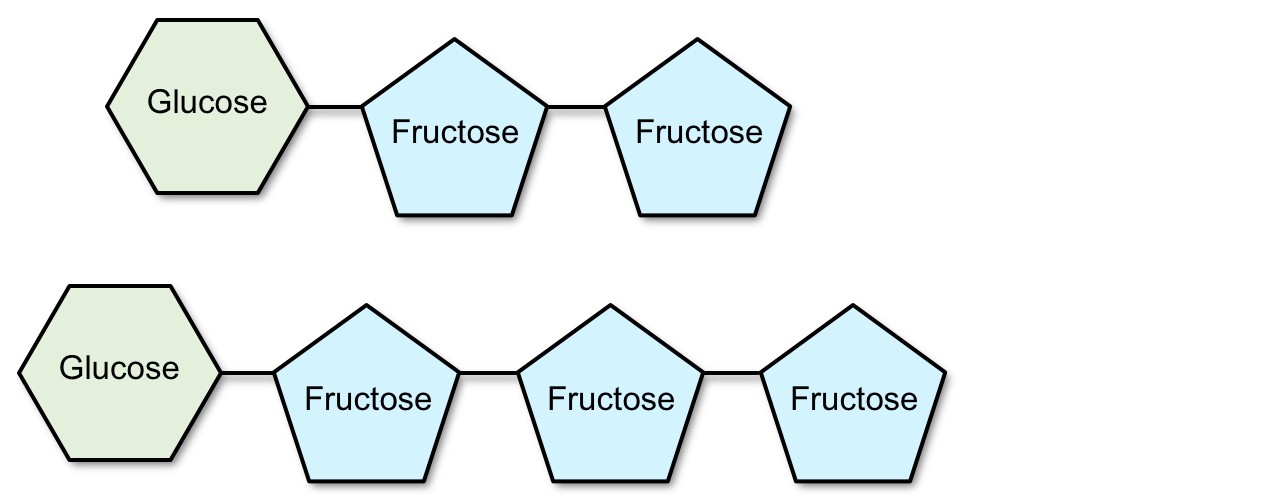 |
| Fructans Fructans are fructose chains with a glucose molecule at the end. Short fructan chains are called fructooligosaccharides. They resist digestion in the small intestion and reach the colon where they serve as a substrate for the intestinal microflora. Short fructan chains are readily fermented. |
 |
| Oligofructose Oligofructose is a prebiotic fiber that consists of fructose chains. |
 |
| Galacto-oligosaccharides Galacto-oligosaccharides are galactose chains with a terminal glucose molecule. They are prebiotic fibers that occur in foods like legumes. |
Polysaccharides
 |
| Inulin Inulins are long-chain fructans. Some plants, e.g. chicory, use it in place of starch to store carbohydrates. They resist digestion in the small intestion and reach the colon where they serve as a substrate for the intestinal microflora. |
 |
 |
| Starch Many plants (e.g. potatoes or cereals) accumulate carbohydrates in form of starch. Starch consists of long linear or branched glucose chains. Depending on the structure, these chains can be enzymatically broken down into glucose and absorbed at varying speeds. |
FODMAPs
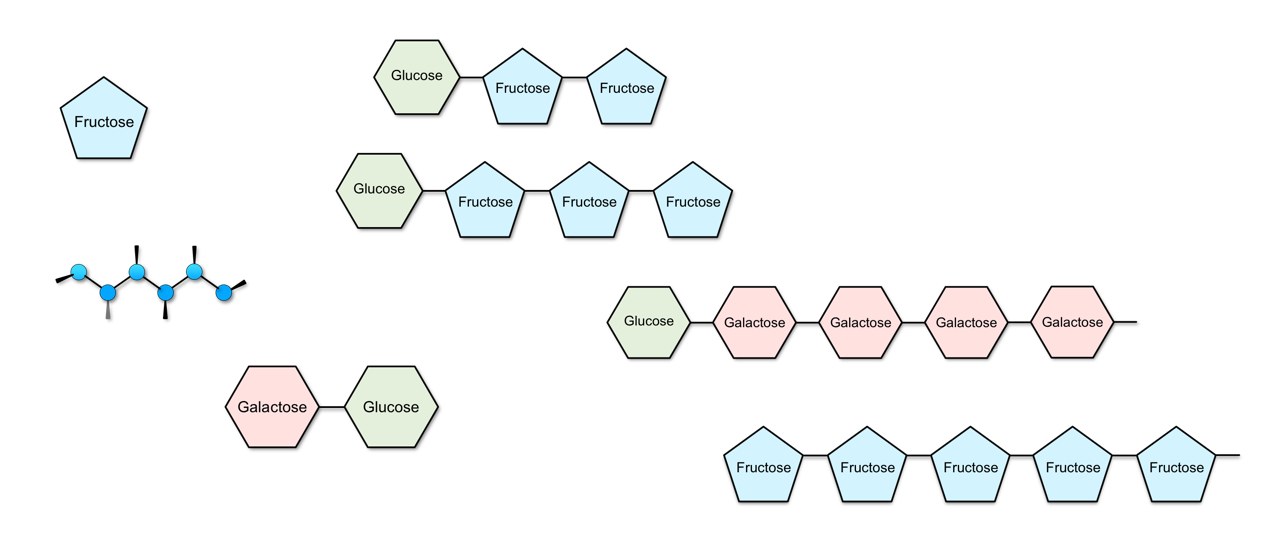 |
| FODMAPs The term FODMAP is an acronym, derived from "Fermentable, Oligo-, Di-, Mono-saccharides and Polyols". It is the generic term for certain kinds of short-chain carbohydrates that are poorly absorbed while they travel through the small intestine:
|
Why do we care so much about this topic?
 We have been developing our price-winning "Food Intolerances" app since 2011 and we are happy to share our knowledge with you. Check it out:
We have been developing our price-winning "Food Intolerances" app since 2011 and we are happy to share our knowledge with you. Check it out:
Share article
Share article
Back to blog
Image:
Photo by Diana Polekhina on Unsplash
![[Blog]](../../rw_common/images/baliza_logo_retina.png)

